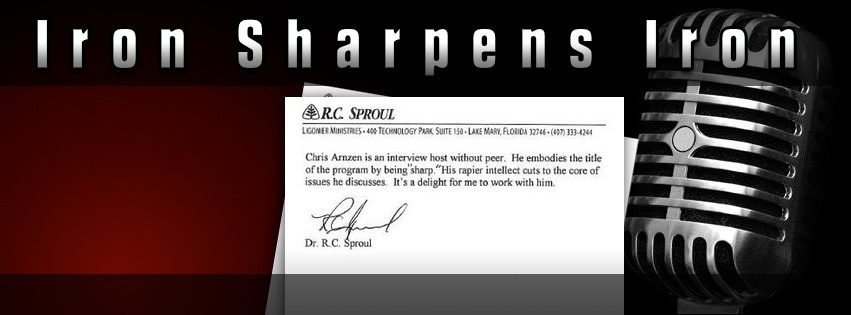




 |
|||||
 |
THE DIVINE PURPOSE Displayed in the Works of Providence and Grace
John Matthews, Preface by Archibald Alexander![]()
"The chief excellency of these Letters is, that they present the subject of DIVINE DECREES, without the forbidding aspect, which it is apt to assume in the view of many persons. One thing the reader may be assured of, that whether he should coincide in opinion with the author or not, he will find nothing in the volume calculated to wound the most delicate feelings. A spirit of meekness and kindness, eminently characteristic of the writer, pervades the whole." - Archibald Alexander, from the Preface![]()
TABLE OF CONTENTS ![]()
1- Difference between truth and error always important![]()
2- The influence of prejudice, answer to the question, 'What are the Decrees of God?'![]()
3- God never acts without design, 'What is Providence?'![]()
4- Death, with all its causes, under the government of Providence, the care of God extends to the whole universe![]()
5- The divine purpose neither suspends, nor violates the free agency of man![]()
6- The divine purpose perfectly consistent with the free agency of man![]()
7- A method of ascertaining the extent of Divine Providence, Great events necessarily include all the less ones, of which they are made up.![]()
8- Events, similar to those contained in the prophecies and promises of God, are all included in his purpose.![]()
9- The purposes of God not inconsistent with the moral agency of man.![]()
10- This consistency incomprehensible to us, but so are many other things which yet we believe.![]()
11- Moral Government, Salvation by Grace.![]()
12- The favors of God, bestowed according to his own design, Purposes, decrees, intention, foreordination, etc.![]()
13- The number to be saved, dependent entirely on the will of God.![]()
14- The means of salvation suited to each individual, embraced in the divine purpose.![]()
15- The Providence of God subservient to the designs of mercy, Great events made up of smaller ones, Our duty and interest to meditate on all His works.![]()
16- Man is a Predestinarian, the Commander of an army, the Architect, the Farmer, elect, foreordain, etc.![]()
17- The final perseverance of Christians![]()
18- The same subject considered further.![]()
19- The doctrine gives such views of the character of God as are calculated to excite devotion, Conclusion![]()
![]()
6 LIFE-CHANGING BOOKS![]()
*A Pastor's Sketches (Double Volume) by Ichabod Spencer![]()
Stepping Heavenward by Elizabeth Prentiss![]()
*Counsels and Thoughts on the Spiritual Life of Believers by Thomas Moor![]()
The Person and Work of the Holy Spirit by Benjamin B. Warfield![]()
The Divine Purpose by John Matthews![]()
THOUGHTS FOR YOUNG MEN by J.C. Ryle![]()
(* means it is a hardcover volume)![]()
DOG BOOK![]()
N3 5pt t10 lc6 BOTPROV![]()
Nearly 50% Discount![]() SGCB Price: $9.95 (list price $18.00)
SGCB Price: $9.95 (list price $18.00)
Available to Ship![]()
ORDER WITH OUR NEW BANNER OF TRUTH TRILOGY ON PROVIDENCE![]() SGCB Price: $34.50 (list price $57.00)
SGCB Price: $34.50 (list price $57.00)
40% DISCOUNT WHEN ORDERING ALL 4 TITLES![]()
Additional Information
• Biographical Sketch
| Biographical Sketch |
John Matthews
[19 January 1772 - 19 May 1848]
A Memorial Minute published in honor Dr. Matthews:
The peculiar circumstances of Dr. Matthews' early history, give a deep interest to the distinction to which he afterwards attained as a preacher of the everlasting Gospel, and an expounder and teacher of the doctrines of the Church. He was born in Guilford county, North Carolina, in the fall of 1772, where he devoted himself, until advanced to manhood, to a secular occupation, the evidences of which are yet to be seen. The pulpit of the old church in Orange county, where his mind was first turned to the subject of religion, is still pointed out as the handy work of Dr. Matthews.
His academical and theological studies were prosecuted under the direction of the well known Dr. David Caldwell of Guilford, North Carolina, and his license given him by the Presbytery of Orange in the month of March, 1801, at the age of twenty-nine years. Until 1803 he travelled in Tennessee as a missionary, enduring many privations, after which he was called to become the pastor of the Nutbush and Grassy Creek churches of Granville county, North Carolina. In this relation he continued until 1806, when he removed to Martinsburg, Virginia, and then to Shepherdstown, following the removal of Dr. Moses Drury Hoge to Hampden Sydney College.
In this field of labor Dr. Matthews earned a most enviable reputation from the abundance and quality of his ministerial services. His preaching at the commencement of his career as a minister was of a fervent, awakening description. This he afterwards exchanged for a more composed and didactic mode, characterized by great perspicuity and logical arrangement. There is reason to believe that his labors about this time were much blessed to the conviction and conversion of sinners.
From this field of labor and usefulness, where he is yet held in grateful remembrance, he was called to fill the chair of Didactic Theology in the Theological Seminary, then located at South Hanover, Indiana, now at New Albany. In responding favorably to this call there is evidence to believe that he was actuated by a disinterestedness which shrunk not from the prospect of future trials--"I am called by God," he said to a near friend who was counseling him against the acceptance of the invitation, "to an unpleasant mission like Jonah, and if I do not go I shall expect Jonah's punishment." He left an affectionate people, whose affection he full reciprocated, for a position in which he was called to endure privations until the close of his days. In the spirit of a true disciple he went forth, counting nothing dear to him so that he might finish the work that was given him to do. Happy for the Church if all her ministers were of like spirit.
The same perspicuity which marked his preaching, the intellectual vigor which characterized his work on the Divine Purpose, which has so often been studied with profit by the inquiring soul, were manifested in his duties as Professor, and though advanced to the age of seventy-seven, he continued with great vigor of mind, though in great feebleness of body, to attend on all the exercises of the lecture -room. He continued to discharge all his duties as Professor until one week before his decease; then he who had so long and so implicitly listened to his Master's voice while in his earthly abode, was summoned to his mansion of rest on high. He rests from his labors, and his works do follow him.
[excerpted, with minor editing, from The Minutes of the General Assembly of the Presbyterian Church in the United States of America, 1848, pages 41-43. Four additional accounts about Dr. Matthews may be found in vol. 2 of Wm. B. Sprague's The Annals of the American Presbyterian Pulpit (Birmingham: Solid Ground Christian Books, 2005), pp. 292-299.]
